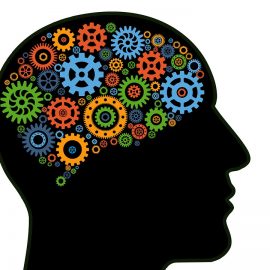

This article is an excerpt from the Shortform book guide to "Hit Refresh" by Satya Nadella. Shortform has the world's best summaries and analyses of books you should be reading.
Like this article? Sign up for a free trial here.
What is the foundation of trust? What sustains relationships over time?
Empathy is the central theme of Microsoft CEO Satya Nadella’s business philosophy. He defines empathy as the cornerstone of all that he does. Nadella promotes empathy as the foundation of trust, which sustains both personal and professional relationships over time.
Continue reading to learn about the connection between empathy and trust.
Empathy as the Foundation of Trust
Seeing empathy as the foundation of trust helped Nadella transform Microsoft’s culture. He describes how, when he first took over as CEO, Microsoft’s workplace had grown toxic over many years. Employees were more interested in backstabbing one another or arguing with each other than they were in pulling together as a team to achieve common objectives. To combat this, Nadella promoted team-building exercises and encouraged seeking common ground. He also took the time to get to know his senior team members as individual people, not just as employees, by hosting a meeting in which each person was allowed to open up about themselves on a more personal level.
(Shortform note: As some writers have observed, these changes are largely because of Nadella’s personality. His predecessors, the hot-tempered Gates and the larger-than-life Ballmer, were known for ruthless business tactics that turned customers off. In contrast, Nadella is calm and subdued, replacing Microsoft’s winner-take-all approach with openness and curiosity. As a result, he was able to reform Microsoft’s image from that of a big, bad corporation to that of the “cool kid.”)
Listening to competitors and partners and empathizing with their points of view created trust, Nadella says. In turn, connecting empathy and trust led to more fruitful business partnerships and harmonious coexistence with rival companies.
| Inspiring Trust at Work Nadella’s focus on trust is in line with the view that trust is the foundation for solid leadership. Experts conceptualize trust as a triangle made up of three main points: 1) Be compassionate and interested in others. Always be patient when dealing with colleagues in the workplace. Give others your full attention during interactions to show them you’re engaged in what they have to say. People are more likely to trust and respect someone who they believe is sincere in caring about them. 2) Be clear and comprehensible in your ideas. People tend to trust those who are able to present their thoughts and reasoning in an orderly, comprehensible way. 3) Be yourself. Don’t hide behind a “work persona” at all times, making your real self a mystery to those you work with. Instead, learn how to open up to your colleagues and show a more personal side. It’s easier for others to trust you when they know who you really are. |
Exercise: Practice More Empathy at Work
Nadella believes that empathy has shaped his career and his vision for Microsoft and that it’s important to practice it through direct engagement.
- Describe an instance when you experienced conflict with an employee, colleague, or customer. How might it have played out differently if you had practiced empathy in the situation?
- List one to three ways you can start practicing more empathy at work. (For example, regularly asking for upward feedback from employees.)

———End of Preview———
Like what you just read? Read the rest of the world's best book summary and analysis of Satya Nadella's "Hit Refresh" at Shortform.
Here's what you'll find in our full Hit Refresh summary:
- How Satya Nadella brought Microsoft back from its decline
- Actionable advice to help you reinvigorate your company
- A look at the ethical responsibilities of tech companies






